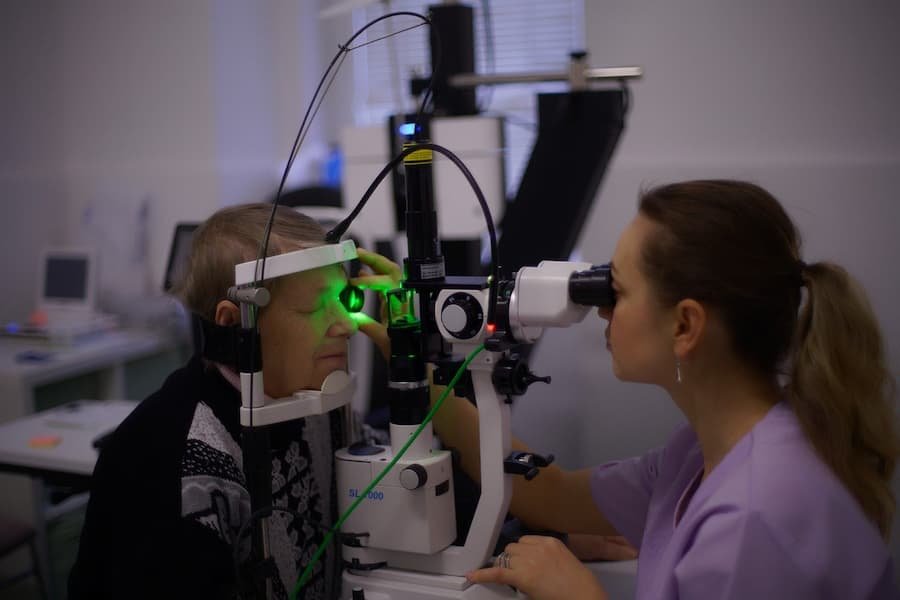Each laser eye surgical treatment requires different recovery periods. However, following the aftercare directions and tips your surgeon gave you to the T is crucial for reducing the duration of recovery and making the post-op process more comfortable for you.
If you are undergoing your first laser eye surgery in Dubai, aside from following the list of post-operative care tips and steps your surgeon provides you, take note of these dos and don’ts to have a less uncomfortable experience and hasten your recovery.
Table of Contents
Dos
1. Rest.
Whether or not you feel fine after your surgery, it is best to relax and rest immediately after the procedure and several days later.
Doing so gives your eyes time to heal and reduce the discomfort and other side effects you might feel later on.
Resting also means not working out for at least a week after the surgery. As such, avoid lifting weights and any kind of strenuous exercise.
This is because sweat can get in your eyes when you exercise. And this can delay the progress of your recovery.
2. Wear the recommended eyewear.
Your doctor will give you protective goggles to wear after the surgery. This eyewear prevents you from rubbing your eyes unintentionally and other kinds of accidental contact.
Your doctor will instruct you to wear this for the next 24 hours after surgery, then only at night for the next few days.
During the following days, wear UV-protective sunglasses whenever you go outdoors, even if it is cloudy. You also need to put them on when you will be subjected to bright light indoors.
Wearing a pair of UV-protective sunglasses is crucial post-op since your eyes will be extremely sensitive to light.
You can avoid this discomfort and hasten your recovery when you wear UV-protective sunglasses during the day until your eyes completely heal.
3. Use the prescribed eye drops and recommended medication, if any.
Your doctor will prescribe an antibiotic and mild steroidal eye drop, or a two-in-one product, and artificial tears or lubricant. You have to use them based on your specialist’s instructions.
The antibiotic eye ophthalmic drop keeps infections at bay, while the steroidal one will prevent inflammation.
If you feel pain or soreness after surgery, take the prescribed pain reliever to minimize your discomfort.
Your eyes will likely be dry for the next few months after surgery. Because of this, you need to use artificial tears to lubricate and keep your eyes moisturized as instructed by your doctor.
4. Attend your post-op appointments with your doctor.
Your surgeon will likely ask you to see them a day or two after your surgery. Make sure you see them as scheduled so that they can check your eyes and give you advice if you feel some discomfort.
You will also have a follow-up appointment three or four weeks after your surgery and another one after six months.
Again, make sure you show up for these appointments since your doctor needs to check if your eyes are healing as expected.
Don’ts
1. Read and use electronic devices.
Resting your eyes post-surgery also means avoiding activities that can strain them. These include staring at electronic screens and reading books, magazines, and other materials.
Staring at video screens not only strains the eyes; it can also cause them to dry out. As such, turn off your phone, tablet, and Kindle for at least two days after your surgery. Avoid turning on your TV, computer, and laptop during this period as well.
Reading print materials means focusing on the text, which can strain your eyes.
For a quick and successful recovery, avoid these activities post-surgery. It is also best to minimize doing them for the next few months.
2. Rub your eyes.
After your surgery, it is normal for your eyes to feel itchy, dry, and irritated. Your instinct might be to rub them to relieve discomfort.
However, rubbing or even touching your eyes can derail your healing and cause other complications, which will render the procedure useless.
Because of this, use the artificial tears your doctor prescribed whenever your eyes are itchy. You can also contact them if the discomfort you’re feeling is unbearable.
3. Engage in any activity that will irritate your eyes.
Lastly, for the next several days, you have to avoid doing any activities that can irritate, infect, and inflame your eyes.
These include:
- Getting water on your eyes. Bacteria, germs, and other harmful substances live in water, which can get into your and infect your sensitive, treated eyes. As such, do not wash your face by rubbing, and when bathing, wet your body only. Wash your hair towards the back, to avoid shampoo irritation & rubbing, at least for 3 months. Avoid swimming in pools, beaches, lakes, and other bodies of water without protective goggles for the next several months as well.
- Wearing makeup. Avoid applying eyeshadow, eyeliner, mascara, or even a primer for several weeks after your surgery. Cosmetic products are potential breeding grounds for bacteria and germs so go au naturel for now.
- Staying or working in a dusty and smoky area. Smoke and dust can trigger irritation & watery eyes, and subsequent dryness sensations, which leads to eye rubbing and discomfort. For the next few months post-surgery, avoid dusty and smoky places.
Undergoing laser surgery at a trusted eye clinic in Dubai is another important tip you have to follow. With qualified specialists, you can be sure of a safe and successful procedure and smooth recovery process.
AUTHOR BIO
Dr. Millicent M. Grim, Specialist Ophthalmologist & LASIK Specialist, is the Medical Director of Gulf Eye Center in Dubai. Since 2002, Gulf Eye Center’s highly qualified ophthalmologists and optometrists/ODs have been successfully treating a wide range of eye conditions using advanced techniques. They also provide comprehensive eye care and vision restoration procedures for people of all ages.
Read also: Is Laser Eye Surgery Safe For You Or Not?

